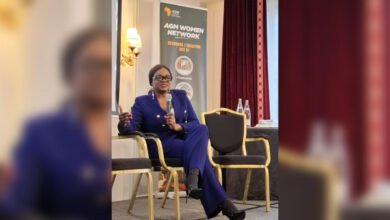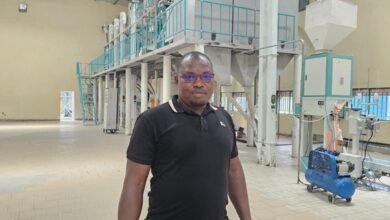« Enabling African capital to mobilize in Africa » – Alain Lenoir, Chairman of the FSF
For African countries, financing mobilization remains a major challenge. Given the scope of the needs, coupled with the tense States’ finance, African capital should be mobilized in African soil, said Alain Lenoir, chairman of the Board of Directors of Finance Sans Frontière (FSF) and special Advisor to the Chairperson of the African Bank Leaders Club.
Interview by Blamé Ekoué
How is the finance sector in the continent?
We can answer to this question in various ways, as finance broadly covers both public finances and banking sector. With respect to public finances, I will just say that the States dangerously tend to go into debt often excessively. It is no longer a question of external indebtedness, but of domestic indebtedness in the form of treasury bills and bonds. The question arises as to what may be the limit to these risky operations. However, this situation is contrasted according to the monetary zone.
So can you give us an overview of the zones?
Generally, the banks are performing well and sometimes very well in the West Africa Economic and Monetary Union (WAEMU). The 2016 results which are beginning to be published are excellent and the prudential ratios of the Banking Commission are respected. On the other hand, the treasuries, which were not very long ago too large, clearly tend to go down due to increasing loans, especially in the Ivory Coast where the demand is high, and some predatory effect caused by repeated treasury bills in attractive terms. Still, the banks are active and doped by an increasingly-strong competition. For example: there are more banks in the Ivory Coast than in Nigeria and they compete imaginatively to offer innovative products and services… Conversely, the banks in the Central Africa Economic and Monetary Union (CAEMU) zone are ragged by the economic crisis due to the fall in oil prices and governance in most countries where the recent elections often went wrong. For example, last December the former governor of the Bank of Central Africa (BEAC) said that more than half of the banks in the sub-region were likely to incur losses by the end of 2016 and to be sanctioned by the Bank Commission of Central Africa (COBAC). The reduction in deposits in banks (less than 20% in 2016 in Congo) and the difficult debt recovery have a negative effect on the results and means of action. The CFA devaluation rumors also distrust the savers and the investors.
With regard to international and regional financing, and south-south cooperation, do you think African States can be financially autonomous in the near future?
In the context of economic globalization, it’s no longer important to be completely autonomous financial ly, especially when we are in an economy of needs. In such a situation, financial autonomy results either from the level of impoverishment (the CEMAC countries are obliged to re-establish relations with the IMF), or, contrary to increasing development needs which national resources lack to meet. Again, this is the case in the Ivory Coast, where competition is very hard between investors. However, there is no desire to over-rely on other continents. The debtor countries are still under the supervision of their creditors, with the resulting consequences on conditionality. Only few States are satisfied with the relations with the IMF – and not only in Africa: see the example of Greece… Therefore, regional financing institutions, such as the Development Bank of West Africa (BOAD), should be created as they facilitate emerging regional integrations.
What are then the challenges to be financially autonomous?
The first strategy is to allow African capital to mobilize in Africa, instead of moving to other continents, especially in tax havens. If the emerging vision is still difficult to be achieved in Africa with too many poor people, there are rich and sometimes very rich Africans. They must be encouraged, perhaps forced, to maintain their capital in their continent. The second strategy is simply to inspire sufficient confidence to attract foreign investors who are still too hesitant to invest their capital in Africa because of persistent social and political unrests. We all know the mineral, agricultural and human resources in Africa, whose exploitation is thwarted by excessive weak governance among the senior authorities. For, of course, good governance remains the main criterion to attract foreign investors and mobilize domestic investors. This implies in particular a fair redistribution of wealth in the WAEMU and CEMAC zones in order to curb down poverty and alleviate the health and education infrastructure deficiencies. Therefore, confidence should be established as a prerequisite for sustainable development … This is the challenge. Easy to say: but not easy to implement.






